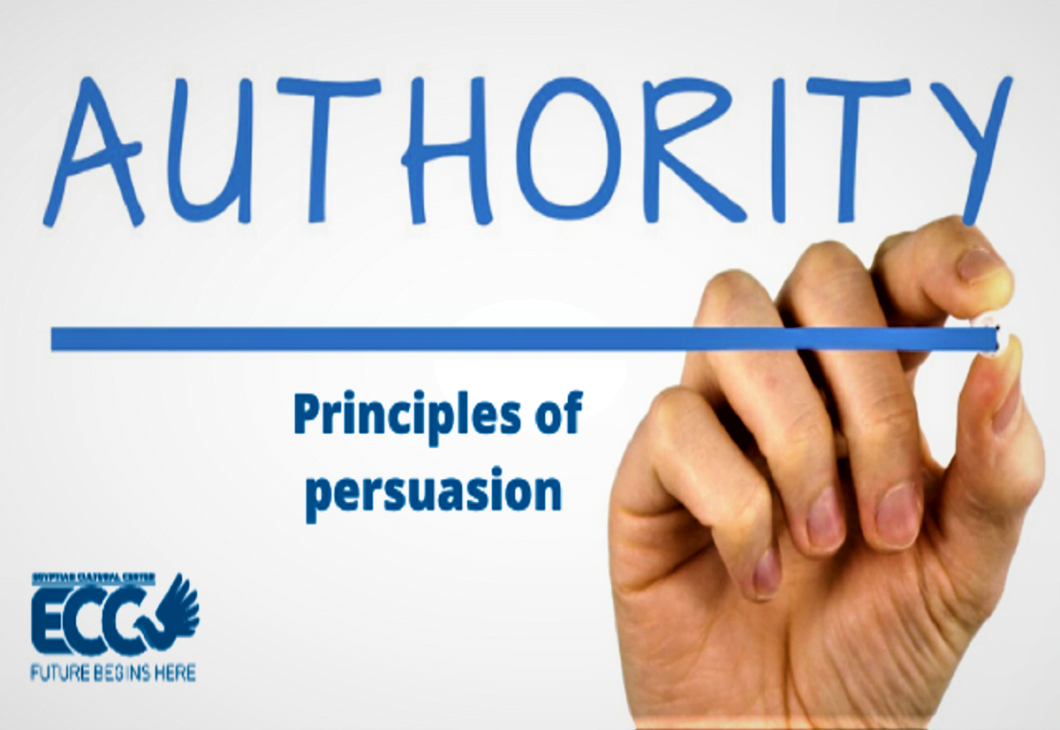We obey authorities without question, and mere symbols of authority can already win our compliance.
From birth, we’re taught to always obey figures of authority, be they teachers, doctors or police officers. Unfortunately, this tendency to comply with authority is so ingrained and powerful that we don’t bother to think or challenge perceived authority figures before obeying them.
Renowned psychologist Stanley Milgram conducted a study in the 1960s showing that volunteers would administer potentially lethal electric shocks to others simply because they were told to do so by an authority figure. Although no one was harmed, the experimenters were surprised by the results.
A professor, we not only become automatically more respectful and accepting of their opinions, but studies show that we also tend to see them as physically taller!
Clothes and props are also powerful authority symbols. In Milgram’s experiment, it was the authority figure’s white lab coat and clipboard that convinced participants they should obey them and “torture” their fellow test subjects.
Of course, there are authority figures that we should listen to, like judges or certain physicians.
Conclusion
Knowing these six fundamental principles of persuasion – reciprocation, scarcity, consistency, social proof, liking and authority – will hopefully help you protect yourself against them.
By taking advantage of a human tendency, certain questions elicit desired answers and influence decisions.
Reciprocity—when we do for others as a return of favour.
Liking—when we do something because we like the asker.
Social Proof—when we’re receptive to following our peers.
Authority—when we listen to experts.
Scarcity—when we want what we cannot have.
Consistency—that we generally like to stay consistent with what we said we would do.
Post studies on the influencing approach led us to pre-suasive techniques for a persuasive style
If a stranger ever approaches you and asks whether you feel unhappy, beware – there’s a good chance that this isn’t an innocent question. In fact, this is exactly the kind of question a cult recruiter is likely to ask.
Questions like this are part of the positive test strategy, which is designed to take advantage of our natural tendency to focus on what is present, rather than what is missing.
To phrase it another way: We look for hits, not misses. So, if someone asks “Are you unhappy?” it prompts us to search for the presence of unhappiness, not the lack of unhappiness.
Cult recruiters aren’t the only ones who exploit this human tendency; telemarketers, pollsters and salespeople also take advantage of it. Such seemingly simple questions are also known as single-chute questions, which can manipulate us into confirming the very thing they are trying to prove.
A 1993 study shows this principle in action. Two groups of average Canadian college students were asked very similar questions. One group was asked whether they were unhappy with their social lives; the other was asked whether they were happy with their social lives.
Remarkably, members of the first group proved to be 375 percent more likely to report unhappiness than those in the second group.
Often, when a question like this is asked, it’s to influence how someone pictures himself before asking him to make a decision. This is why they’re called “pre-suasive” questions.
This is also why these questions are a good tool for marketers, as they can subtly influence whether or not potential customers will make a purchase.
Recently, communication scientists San Bolkan and Peter Andersen had marketers try to convince test subjects to sample a new soft drink and provide their email address.
Before the pitch, some test subjects were asked if they saw themselves as adventurous people who like to try new things – and 75.7 % of them tried the drink and gave their email. Those who weren’t asked this pre-suasive lead-in question were much less likely to go along with the marketers. A mere 33 % tried the drink and gave their email.
Example: and put your product or service instead of the xxx
“Excuse me. Before we begin, would you please explain to me?
Why you asked us to deliver the xxx for you?”
“Do not seek dishonest gains.”


